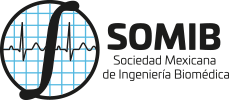Effect of the Conditioned Medium from H9C2 Cell Line Treated with Dehydroepiandrosterone and Exposed to Damage on the Motility of Mesenchymal Stem Cells
DOI:
https://doi.org/10.17488/RMIB.38.1.21Keywords:
Dehydroepiandrosterone, Motility, Cardiac Damage, Wound Healing Assay, Mesenchymal Stem CellsAbstract
Cardiovascular diseases (CVD) are the leading cause of death worldwide. Mesenchymal Stem Cell (MSC) therapy is an alternative for patients who cannot recover with current treatments. Ensure movilization of MSC to the affected organs would represent an advantage for therapeutic management of CVD. Dehydroepiandrosterone (DHEA) is a hormone precursor whose levels decrease throughout life, which has been associated with the onset of CVD. Several studies have shown that DHEA consumption, prevents and improves heart condition, although it is not known if this is because an effect on cardiomyocytes is exercised on these cells and this, in turn, to CTM. The aim of this study was to determine the effect of conditioned medium from H9C2 cell line pretreated with DHEA and subjected to damage, on the motility of CTM, performing a wound healing assay. Pretreatment with DHEA and damage to H9C2 cell line, promotes motility of CTM. Stimulation of CTM motility by an indirect effect of DHEA could be a therapeutic strategy for heart damage.
Downloads
Published
How to Cite
Issue
Section
License
Copyright (c) 2017 G X Castro Santos, J L Salas Medina, R López Marure, J R Cáceres Cortés, A Parra Barreraa, E Mera Jiménez, G Gutiérrez Iglesias

This work is licensed under a Creative Commons Attribution-NonCommercial 4.0 International License.
Upon acceptance of an article in the RMIB, corresponding authors will be asked to fulfill and sign the copyright and the journal publishing agreement, which will allow the RMIB authorization to publish this document in any media without limitations and without any cost. Authors may reuse parts of the paper in other documents and reproduce part or all of it for their personal use as long as a bibliographic reference is made to the RMIB. However written permission of the Publisher is required for resale or distribution outside the corresponding author institution and for all other derivative works, including compilations and translations.








